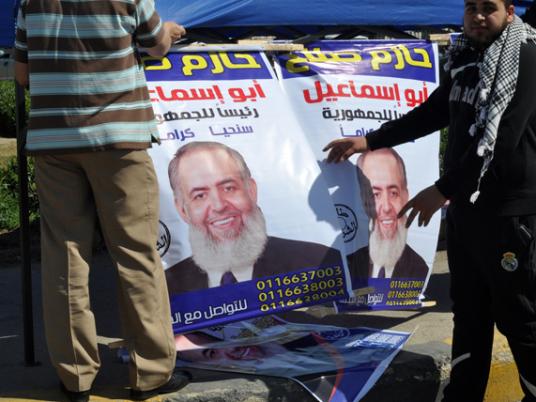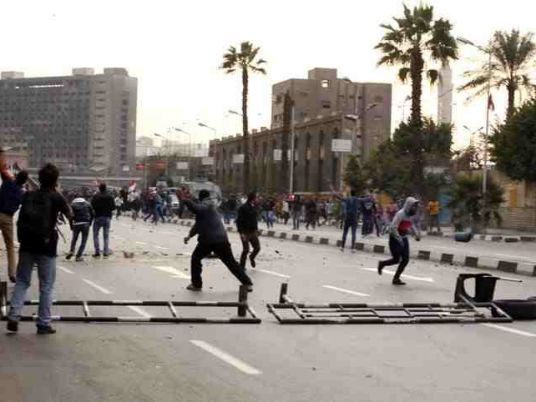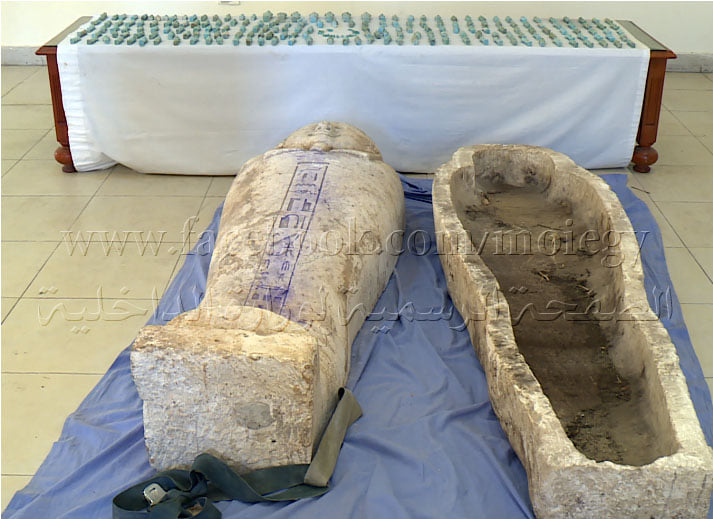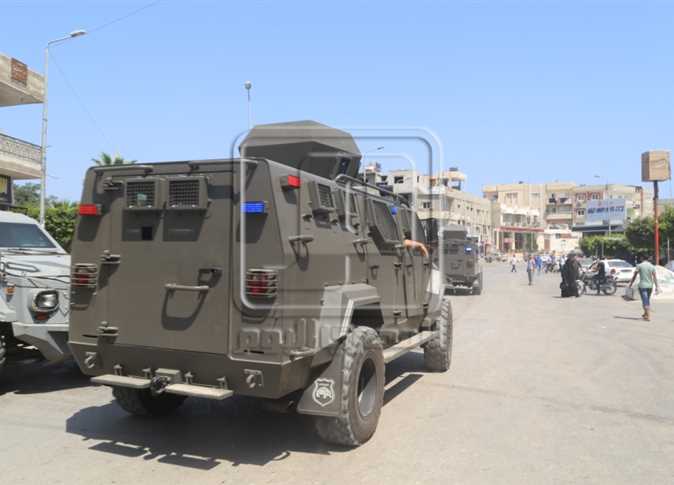
The main headlines in Egypt’s newspapers Wednesday cover heated competition between presidential hopefuls in their early bids, controversy surrounding a national security officer detained by protesting workers after he allegedly called on them to storm the Parliament building, and reports of former Hosni Mubarak regime officials making reconciliation offers for their corruption cases through financial settlements.
The top headline of state-owned newspaper Al-Gomhurriya reads, “Mulid Sidi al-Rayess” in a mocking reference to festivals commemorating saint-like personalities. A sub-headline explains that among the first seekers of a presidential nomination were an undertaker and a cleaning woman, among a host of other unconventional aspirants. On the fourth day of the nomination process, the paper reports that Ahmed Awad al-Saidy — a little-known figure from the newly established Egyptian Nationalist Party — was the first person to submit his preliminary paperwork for the presidency.
Al-Gomhurriya’s headlines also mention that presidential hopeful and moderate Islamist Mohamed Selim al-Awa confronted attempts to disrupt his campaign in Alexandria. And while former Foreign Minister Amr Moussa attended a popular wedding in Sohag, Nasserist-leaning hopeful Hamdeen Sabbahi said he would seek a Coptic Christian, a woman and an Islamist to serve as his vice presidents if elected, the paper says.
In a headline, the paper reports Salafi candidate Hazem Abu Ismail as saying that the elections “won’t pass peacefully, except through the people’s vigilance.” Another moderate Islamist candidate, Abdel Moneim Abouel Fotouh, stands in solidarity with protesting and hunger-striking students at the German University in Cairo.
In the independent Al-Tahrir newspaper, a headline reads, “Israel forecasts electoral victory for Mansour Hassan in Egyptian presidential election.” The paper cites the Hebrew-language Walla news website, which predicts that Hassan — who served as a minister under President Anwar Sadat — is most likely to end up as Mubarak’s replacement. Walla reportedly praises Hassan as the being the ideal presidential candidate because of what it calls his close ties to Israel and support for the Camp David Accords.
Al-Gomhurriya also runs a front page headline reading, “Electoral bribes have begun being distributed in Port Said — LE30 per letter of notarization … First official complaint lodged against candidate Hossam Khairallah.” According to electoral regulations, each presidential candidate must be a member of a political party, get the endorsement of 30 members of Parliament, or obtain 30,000 notarized signatures from individuals in at least 15 governorates, in order to run.
The independent Al-Dostour newspaper reports, “War of notarizations commences among presidential hopefuls in the governorates.” Also in Al-Dostour is the controversy surrounding Article 28 of the Presidential Elections Law. Article 28 stipulates that the appointed committee supervising these elections be granted complete independence and legal immunity.
In light of this provision, Amr Moussa said, “Article 28 is part of the ploy to handpick a particular candidate for the presidency,” while Sabbahi said, “I refuse Article 28. It is preferable to conduct these elections under leadership other than the Supreme Council of the Armed Forces,” according to the privately owned paper.
The chief headline in independent newspaper Al-Shorouk reads: “Presidential battle explodes among political forces.” The article explains that the choice of presidential candidates has caused discord among the ranks of the Muslim Brotherhood and the liberal Wafd Party, along with the moderate Islamist Wasat Party.
In another of Al-Shorouk’s headlines, “Mubarak’s men in Tora Prison make financial offers in exchange for their freedom.” The article explains that Finance Minister Momtaz al-Saeed has alleged that Mubarak’s ministers and officials have offered financial settlements and monetary compensation in return for their release from prison and dropping corruption charges leveled against them.
While Al-Dostour runs a headline reading, “Finance Ministry: We received offers from Tora inmates to return stolen funds in return for reconciliation in corruption cases,” state-owned Al-Gomhurriya phrases the news in a softer and less incriminating tone, saying, “Finance minister: Tora inmates offer to hand over their properties.”
In other news, protesting workers from the state-owned Petrojet Company apprehended a police officer from the National Security Agency seeking to instigate a conflict between these disgruntled workers and military police forces guarding Parliament, where they had been protesting for their rights.
The largest headline in Al-Tahrir newspaper reads, “The Interior Ministry is the ‘Third Party’” in reference to a common claim by the ruling military council that a “third party” is seeking to destabilize the country and cause discord between the populace and the armed forces. A sub-headline announces, “Protesting workers arrest undercover national security officer seeking to convince them to burn down Parliament.” Another subhead reads: “Officer-provocateur exposes Interior Ministry.”
Brotherhood mouthpiece newspaper Freedom and Justice reports, “Workers arrest national security officer calling on them to storm Parliament.” The article mentions that the leader of the Brotherhood’s parliamentary bloc, Hussein Ibrahim, held Interior Minister Mohamed Ibrahim personally responsible for such an act of violent instigation. The FJP leader claimed he did not trust the minister and that there would be further parliamentary hearings regarding the fiasco.
As for Al-Gomhurriya, the state-run paper makes only a brief mention of this police debacle in a small article buried in its middle pages.
Egypt’s papers:
Al-Ahram: Daily, state-run, largest distribution in Egypt
Al-Akhbar: Daily, state-run, second to Al-Ahram in institutional size
Al-Gomhurriya: Daily, state-run
Rose al-Youssef: Daily, state-run
Al-Dostour: Daily, privately owned
Al-Shorouk: Daily, privately owned
Al-Wafd: Daily, published by the liberal Wafd Party
Youm7: Daily, privately owned
Al-Tahrir: Daily, privately owned
Freedom and Justice: Daily, published by the Muslim Brotherhood's Freedom and Justice Party
Sawt al-Umma: Weekly, privately owned
Al-Arabi: Weekly, published by the Nasserist Party
Al-Nour: Official paper of the Salafi Nour Party




